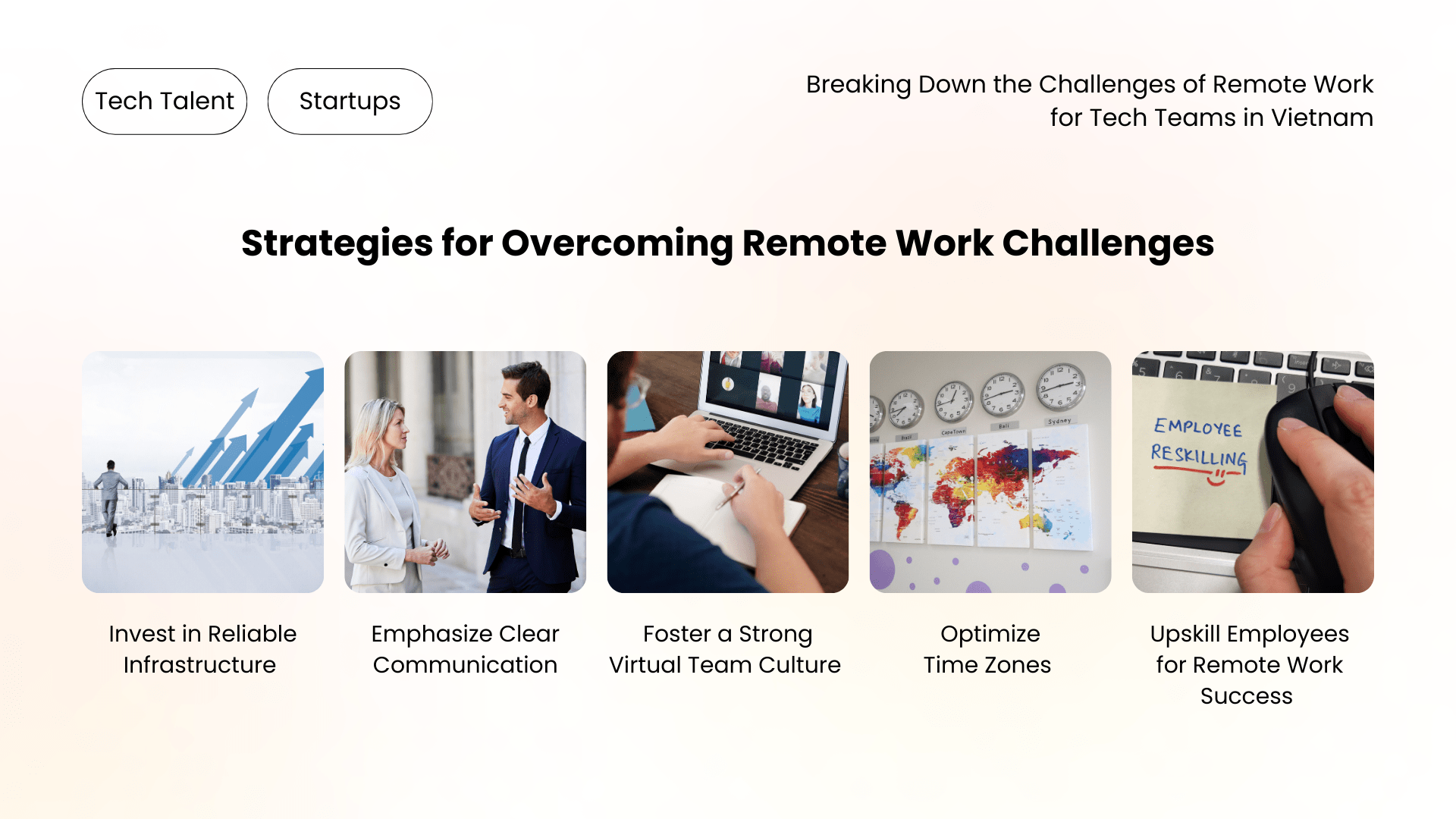Remote work has transformed the global tech industry, offering flexibility and access to talent. Vietnam, producing over 50,000 IT graduates annually, is rising as a tech hub. However, challenges like infrastructure and cultural norms persist. This blog explores these hurdles and strategies for building successful remote tech teams in Vietnam, addressing global talent shortages effectively.
Key Challenges in Remote Work for Tech Teams in Vietnam
1. Infrastructure Limitations
Vietnam is upgrading its internet infrastructure, but disparities persist. The Ookla Speedtest Index ranked Vietnam 52th globally in 2023 with an average speed of 91.71 Mbps, compared to Singapore’s 241 Mbps. Urban centers like Hanoi and Ho Chi Minh City have strong infrastructure, while rural areas struggle with connectivity issues. This affects remote workers, making reliable internet a challenge.
2. Cultural Differences in Work Practices
Vietnamese workplace culture values collaboration and personal connections, with more people preferring in-person communication over digital platforms. This preference challenges adaptation to virtual communication tools. To maintain trust, remote setups should focus on cooperation and relationship-building.
3. Time Zone Coordination
Vietnam’s tech teams in GMT+7 face coordination challenges with U.S. and European teams, losing 4–6 hours of collaboration daily. This impacts productivity, prompting flexible schedules, though synchronous meetings remain difficult.

4. Language and Communication Barriers
Vietnam ranks 5th in Southeast Asia for English proficiency (Education First Proficiency Index, 2022), but the language remains a barrier in global tech teams since it’s not the first language of the workers. A 2023 study found 58% of Vietnamese tech professionals need more English training to work well with international colleagues. Language challenges can lead to communication breakdowns, misunderstandings, and longer project timelines if not managed.
5. Workplace Infrastructure Gaps
Many remote workers in Vietnam face challenges setting up proper workspaces at home, reflecting global trends where limited space and finances hinder ergonomic setups. Studies show that inadequate home offices negatively impact productivity and well-being
Strategies for Overcoming Remote Work Challenges

1. Invest in Reliable Infrastructure
Organizations should subsidize high-speed internet for employees and offer effective remote work tools. Coworking spaces are a solid option, especially for those with home connectivity issues. Vietnam has over 500 coworking spaces, with major hubs in Hanoi and Ho Chi Minh City.
2. Emphasize Clear Communication
Training sessions on tools like Slack, Microsoft Teams, and Zoom can make internal communication more effective. Complementing this with multilingual documentation ensures clarity across global teams. Transparent communication fosters stronger relationships, even in digital work environments.
3. Foster a Strong Virtual Team Culture
Building camaraderie in a virtual setup is challenging but doable. Use virtual coffee chats, weekly video check-ins, and employee recognition programs to boost morale. Gallup’s findings show 80% of remote employees feel more engaged after regular team-building activities.
4. Optimize Time Zones
Leverage asynchronous tools like Loom and Trello to facilitate productivity without requiring real-time collaboration. Additionally, adaptable schedules enable employees to overlap their work hours with international colleagues. A Buffer survey reported that 60% of remote workers feel that flexible hours directly improve productivity.
5. Upskill Employees for Remote Work Success
Vietnam’s projected $3 billion e-learning market by 2025 offers ripe opportunities for upskilling. Training programs that focus on remote-specific skills—such as self-management, communication, and cultural sensitivity—can empower Vietnam’s workforce to excel globally.
The bottom line
In general, it’s clear that Vietnam’s tech industry, fueled by a burgeoning digital economy and enhanced infrastructure, is poised for global success. By embracing remote work and providing strategic support for employees, businesses can effectively leverage Vietnam’s skilled talent.





